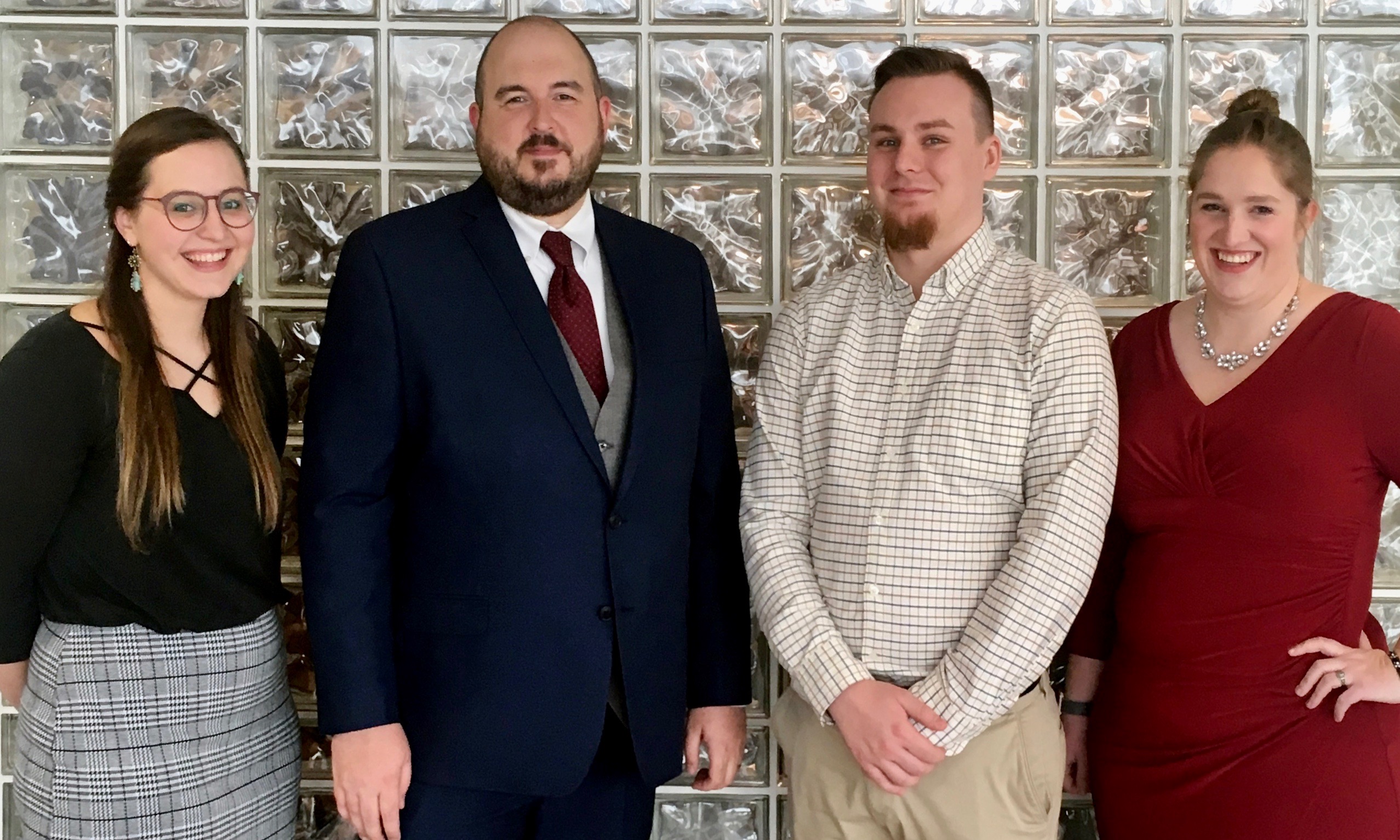A team of UNC Charlotte graduate students is headed to Washington, D.C. to tackle the real-world problem of global migration, through an innovative national simulation competition called “The Refugee Simulation.”
“This day-long event allows graduate students in public policy and related fields to test their skills on real-world data,” said Tom Barth, director of the UNC Charlotte Master of Public Administration Program. “This type of activity is great for our students, because they are able to draw upon their classroom learning, their knowledge of issues, and their analytical and critical thinking skills to suggest responses to a complex contemporary problem.”
Sarahanne Smith, Justin Hamel, Cory Correl, and Kiley Murray, who are students in the MPA Program, will join dozens of other higher education teams for the NASPAA-Batten Student Simulation Competition on Feb. 23, 2019, at Georgetown University. The Network of Schools of Public Policy, Affairs, and Administration (NASPAA) is the membership organization of graduate education programs in public policy, public affairs, public administration, and public and nonprofit management.
This year’s competition will focus on the issue of forced migration and refugees. The UNC Charlotte team and other teams will be asked to balance their budgets and their humanity, facing the underlying question of what sacrifices they are willing to make. Specific questions that the teams will consider include:
- How might governments react to an influx of asylum seekers?
- What policies facilitate integration into the host society?
- Which policies stymie integration?
- What benefits can refugees contribute to a host country, and how do some government deprive themselves of those benefits?
“I think activities like this are important, because it is easy to make judgments about what you would or would not do if you were in a policy-making position, but ultimately you can’t know until you are actually in that situation,” team member Sarahanne Smith said. “Additionally, ideas that seem like good policy decisions could have many unintentional negative consequences. This activity provides a low-stakes environment for us to see consequences — intentional and unintentional, good and bad — play out. Hopefully having this experience will make us better policymakers, voters, and citizens in the future.”
Exercise Emphasizes Leadership, Critical Analysis
Using a turn-based, participatory simulation developed for the competition by the Center for Leadership Simulation and Gaming at University of Virginia, student teams will take on cabinet-level positions of a virtual country. Participants enter policy decisions in the simulation software to see how their policies affect their citizens, their economy, and the migrants themselves. The policy-focused simulation emphasizes leadership, critical analysis, and strategic thinking.
“I was very excited by the idea that we would be able to make policy decisions and then see the consequences, positive or negative, of those decisions play out,” Smith said. “I believe this will be a unique and powerful experience that will help me broaden my political lens, while also allowing me to refine my critical thinking skills.”
The UNC Charlotte team has been gearing up for the big day, in part by reviewing background materials.
“We have also been monitoring the news and current events relating to migration issues in order to provide us with a solid foundation to build from,” Smith said. “None of us have participated in this competition before, so we cannot be sure what to expect. However, I know I can speak for my teammates when I say that we are very excited and honored to be able to have this experience. We hope to make our faculty and university proud.”
The competition is an all-day event. Teams will travel to Georgetown University, where they will complete three rounds of the simulation: twice in the morning, plus once after lunch. Each round will last approximately one hour. After the three rounds, student teams will put together a policy memo and presentation. Experts in related fields will judge the teams’ memos and presentations. Following the presentations, a short debriefing will explain the logic and data behind the simulation, and the judges will announce the winners.
Words: Skylar Case, CLAS Student Communications Assistant | Image: Courtesy of MPA Program








